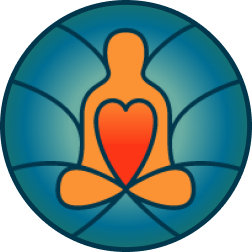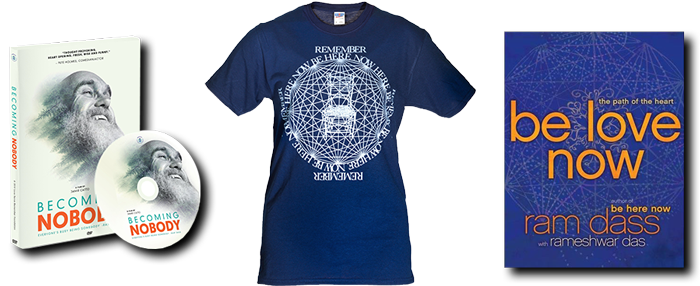How does who we think we are affect what we have to give?
How does our delusion of a ‘separate self’ narrow the range of our compassion? What different understanding of our being might nourish and deepen what we have to offer one another?
All of us seem to be born into the experience of separateness. During infancy, we come to distinguish between “self” and “other.” As we develop, we devise a complex group of ideas about who we are, which is our ego. This includes our identity on a variety of planes in which we function simultaneously – as bodies, personalities, citizens, and souls. We have many roles to play in the course of a single day, each of which is functional and calls attention to itself.
Working a busy afternoon at the mental health clinic, we are more conscious of our professional identity. When we get home and see the children, we’re most aware of ourselves as parents. Then the evening news comes on, and for a little while we are responding to life, say, as a liberal or a conservative. The phone rings, it’s our mother; now we’re someone’s child. But that model falls away quickly enough as we prepare for bed, notice that we’re aging, wonder about our sex life, and drift off to sleep perhaps anticipating tomorrow’s task at the clinic.
Hundreds of times a day, we shift costumes to fit appropriate roles. This is the life of the separate self, moving through the world of “other.”
For the most part, this model “self” or “ego,” with its individual attributes and roles, serves us in good stead. It preserves our physical and psychological integrity, giving us a sense of continuity through time, directing and documenting personal growth. It catalogues past experiences, makes available our skills, helps keep track of capabilities and limitations.
Frequently, we enjoy our individuality and sense of uniqueness. The freedom to define who we are is a challenge. As we acquire a certain degree of equanimity in self-image, we are much more likely to feel empathy for those around us. We know what it’s like to be a “self” moving through the world of “others.” When someone feels particularly isolated or in pain, we don’t need a great deal of information in order to come to his or her aid.
Our own experience of a separate self guides us to appropriate understanding and support.
Perhaps there are more specific parallels of experience. We too have gone through a divorce, lost a loved one, struggled with alcoholism, or experienced a debilitating illness. From this body of common experience, much caring is born. As a separate self, we spend much time reaching out to one another.
Yet it is only fair to say that the quality of our helping sometimes suffers from the hold our sense of separateness might have on us. As happily and healthily as we may function within it, the degree to which we believe ourselves to be individual, isolated entities has consequences for how we care for one another.
To identify with the separate self, however functional it may often be, is to make this model of reality more real for everyone else. How much is this helping, and how much is it hindering?
Perhaps we recognize the predicament when we see the problem of always having to be “somebody.” So we decide to let it all go, become models of humility, and aspire to the ideal of selflessness.
The least we can do is acknowledge or remind ourselves that this is part of the predicament of being human.
We all must deal with conditioning. The sense of ourselves as separate is what we are contending with virtually all of the time. It’s our curriculum, and everybody’s enrolled.
– Ram Dass








Dear Ram Dass, as much as I have enjoyed reading your account of and your prescriptions for dealing with the separated self, I believe there is a fundamental constituent of separation you have not referred to. It is FEAR. The I, the Me of separation is born of conceptual thought. No other species lives with an egoic or mental-emotional self that is separate from its physiological self. The organism is the self. Thought and action are integrated. We humans however are uniquely dis-integrated. The self, the I who I think I am, can create and live in a world of its own, one that is destructive to the needs and wellbeing, not only of the physical self, but to all forms of life on planet Earth. To the existential I which evolved some 200,000 years ago along with the expanded or neo-cortex … and is alive and well today in the cellular memory of every cell in every human body … separation is a terrifying reality: “I exist, I am separate, I am limited, I am vulnerable and I am mortal … I WILL DIE!” We have buried, stuffed this reality deep within the individual subconscious and the collective unconscious. And in order to keep it there and prevent it or the Shadow Self from bubbling up to the surface we think positive thoughts and perform positive/constructive actions. I believe that all human behavior, both the creative and destructive is driven in part by the subconscious drive to overcome/outlive our own mortality. I believe the spiritual challenge, if we as a species are to evolve and not to perish, is not ascension or a disembodied form of enlightenment, but a de-scension or the merging of the conscious with the subconscious, an intentional and transformative journey through the cellular memory of the darkness, the violence, the pain and the suffering of the human underworld. The reliving, forgiving and releasing of the many faces of fear is the transformation of it. It is bringing the darkness into the light. This seems to be the course that this individual soul and the collective over-soul has chosen for me. That said, I have no doubt you have had far more experience navigating the “underground labyrinth” than I have and I would love to get your comments on any of the above. Thank you for your time. Sincerely, Peter Barnhart.